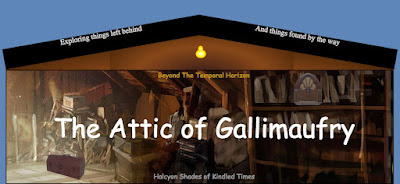 |
Some of the people involved in the complex
and intriguing story of "St. James Infirmary." |
MOMENTS BEFORE LAUNCHING INTO A PERFORMANCE of “St. James Infirmary” in 1941, jazz great Jack Teagarden referred to it as “the oldest blues I ever heard.” The first time I heard the song, sixty years later, it sounded utterly contemporary. I was alone in my apartment and listening to a new CD, The Finest in Jazz Vocalists. Lou Rawls was singing “St. James Infirmary.” I had been a Rawls fan as a teenager, and paid close attention. Rawls began with a mournful preamble, one that — I found out later — was written by Irving Mills in 1930 and is an infrequent addition to the song:
When will I ever stop moaning?
When will I ever smile?
My baby went away and she left me
She’ll be gone for a long, long while.
I feel so blue, I feel heartbroken
What am I living for?
My baby she went away and she left me
No no no never to come back no more.
The band picked up the tempo and launched into the body of that version of the song (there are many versions):
I went down to St. James Infirmary
I heard my baby groan
I felt so broken-hearted
She used to be my own.
Hearing that melody, I shot out of my chair and shouted into the empty room, “That’s ‘Blind Willie McTell’!” It brought to mind, with a jolt, the Bob Dylan song of that name. It’s not that the Rawls' melody was identical to Dylan's, but there were similarities. For instance, both songs use the same basic chords. Thousands of songs are based on those chords, however, so it was probably in the pulse or the phrasing that the similarities revealed themselves. I have played these two songs to friends, who often hear no resemblance. For me, it was a revelation.
Dylan recorded “Blind Willie McTell” in the spring of 1983 for his Infidels album, released in November of that year. “Blind Willie McTell” did not appear on the record, and neither did several others from those New York sessions ("Foot of Pride," "Someone's Got a Hold of my Heart"). “McTell” emerged on no official Dylan recording (bootlegs were another matter) until 1991, when Columbia released a three-CD set of alternate versions and previously unreleased material called The Bootleg Series, Volumes 1–3. This is where I first heard Dylan’s “Blind Willie McTell.”
“Blind Willie McTell” is a magnificent piece of songcraft in which both the poetry and the music carry us into broad terrain. Dylan accomplishes this not through conventional narrative, but through a series of vignettes, a cascade of images that, coupled with a compelling melody, conveys a landscape of conflict and despair. The chorus summons the musician of the title: “Nobody can sing the blues like Blind Willie McTell.” Asked why he had omitted the song from his album, Dylan said he didn’t think he had recorded it right. The first time he performed the song in concert was August 5, 1997, at Montreal’s Du Maurier Stadium, fourteen years after recording it in the studio.
Standing there, listening to Lou Rawls, I remembered Dylan’s words near the end of “Blind Willie McTell” — “I’m gazing out the window of the St. James Hotel.” Here, in a song melodically reminiscent of “St. James Infirmary,” Dylan seemed to be paying homage. I made up my mind to find out more about “St. James Infirmary.” Little did I know that this was the beginning of a very long journey, eventually leading to I Went Down to St. James Infirmary.
.jpg)









